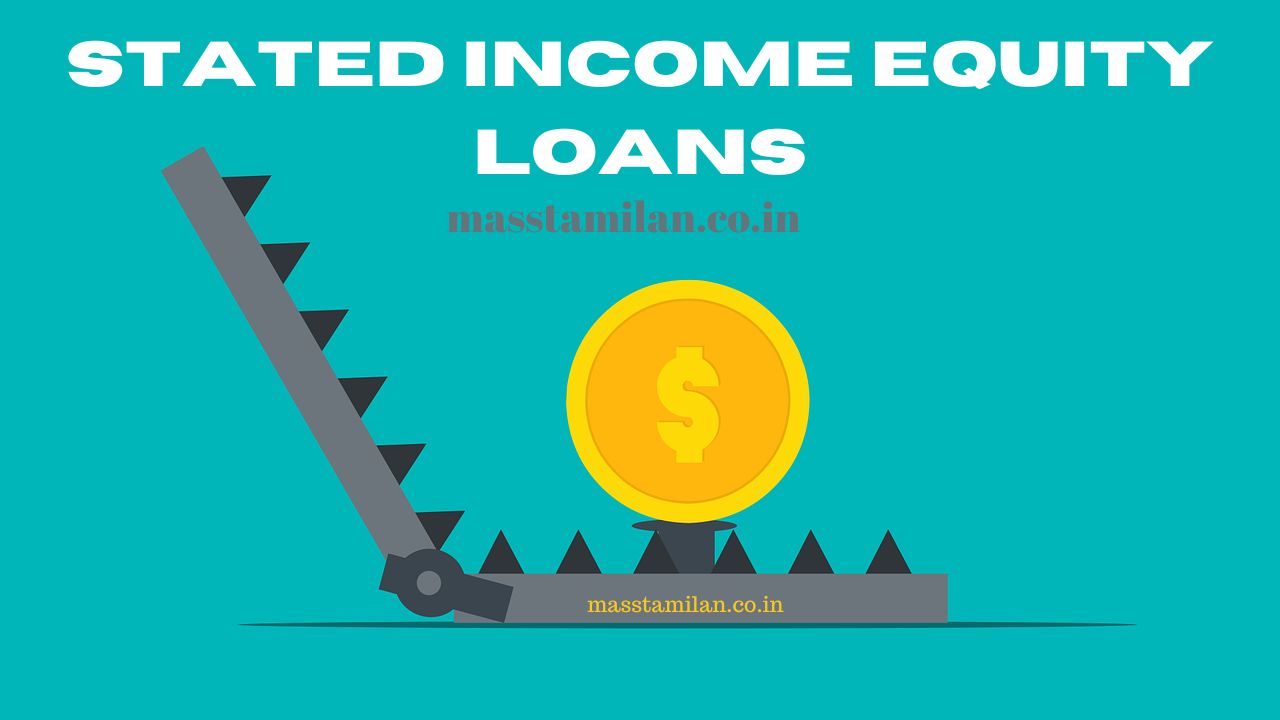Grow your financial opportunities with stated income equity loans. Understand this term in this blog and explore the application process & document process, that is required to get this loan.
Unveiling the Secrets of Business Loan Private
In today’s dynamic financial landscape, Stated Income Equity Loans emerge as a compelling option for individuals seeking to leverage their earning potential to access additional capital.
These innovative financial instruments offer a myriad of benefits and opportunities for borrowers, providing a flexible and accessible means of unlocking the value of their income streams. Join us as we explore the intricacies of income equity loans, uncovering their significance, advantages, and considerations for prospective borrowers.
Understanding Business Loans in San Antonio TX: A Guide
Understanding Stated Income Equity Loans: A Primer
Defining Income Equity Loans
Income equity loans, also known as income-share agreements (ISAs) or human capital contracts, are financial arrangements where borrowers receive a lump sum of capital in exchange for a predetermined percentage of their future earnings over a specified period.
Unlike traditional loans, income equity agreements do not accrue interest, offering borrowers a more flexible and equitable repayment structure tied directly to their income levels.
Structured Settlement Loan: Understanding the Basics
Exploring the Mechanics of Income Equity Financing
Under an income equity arrangement, borrowers receive upfront funding from investors or lending institutions in exchange for a contractual commitment to share a percentage of their future income.
The terms of the agreement, including the repayment period and income share percentage, are negotiated between the parties involved, taking into account factors such as the borrower’s earning potential, career trajectory, and financial needs.
Evaluating the Pros and Cons of Stated Income Equity Loans
Stated Income Equity Loans offer several advantages, including access to capital without accruing interest, flexible repayment terms based on income levels, and reduced financial risk for borrowers.
However, they also present certain drawbacks, such as the potential for higher overall repayment amounts compared to traditional loans and limited flexibility in career choices during the repayment period. Prospective borrowers should carefully weigh these factors before entering into an income equity agreement.
Navigating the Application Process
Assessing Eligibility Criteria
Before pursuing an income equity loan, borrowers must assess their eligibility based on criteria established by investors or lending institutions. Factors such as income level, employment history, educational background, and career prospects may influence eligibility requirements and the terms of the agreement.
Gathering Necessary Documentation
To facilitate the application process for an income equity loan, borrowers should gather essential documentation, including proof of income, employment verification, educational transcripts, and a detailed financial statement. Providing comprehensive documentation demonstrates financial responsibility and increases the likelihood of approval for the loan.
Seeking Professional Guidance
Navigating the complexities of income equity financing can be challenging for borrowers, especially those unfamiliar with the intricacies of financial agreements. Seeking guidance from financial advisors or consultants specializing in income equity loans can provide valuable insights and assistance throughout the application process, ensuring informed decision-making and optimal outcomes.
Maximizing the Benefits of Stated Income Equity Loans
Investing in Education and Skill Development
One of the primary advantages of income equity loans is their ability to finance education and skill development initiatives, empowering individuals to pursue advanced degrees, professional certifications, or vocational training programs.
By investing in their human capital, borrowers can enhance their earning potential and career prospects, ultimately increasing their long-term financial stability.
Funding Entrepreneurial Ventures and Business Ventures
Income equity loans also serve as a valuable source of capital for aspiring entrepreneurs and small business owners looking to launch or expand their ventures.
By providing access to upfront funding without the burden of traditional debt, income equity agreements enable entrepreneurs to pursue their business goals with greater confidence and flexibility, fueling innovation and economic growth.
Managing Financial Obligations and Debt Repayment
For individuals burdened by existing financial obligations or debt, income equity loans offer a strategic solution for debt consolidation and repayment.
By leveraging future income streams to address outstanding debts, borrowers can streamline their financial obligations and regain control over their financial well-being, paving the way for a more secure and sustainable financial future.
Conclusion: Empowering Financial Freedom with Stated Income Equity Loans
In conclusion, Stated Income Equity Loans represent a powerful tool for individuals seeking to maximize their financial opportunities and unlock the value of their income streams.
By providing access to upfront capital without the constraints of traditional debt, income equity agreements offer borrowers a flexible and equitable means of achieving their financial goals. However, prospective borrowers should carefully evaluate the terms and implications of income equity financing before proceeding, ensuring alignment with their long-term objectives and financial priorities.



